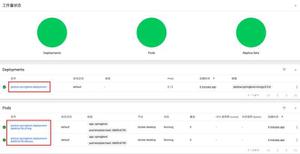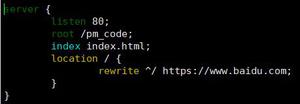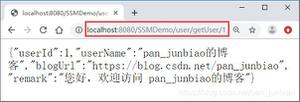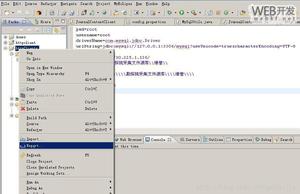基于redis setIfAbsent的使用说明
如果为空就set值,并返回1
如果存在(不为空)不进行操作,并返回0
很明显,比get和set要好。因为先判断get,再set的用法,有可能会重复set值。
setIfAbsent 和 setnx
setIfAbsent 是java中的方法
setnx 是 redis命令中的方法
setnx 例子
redis> SETNX mykey "Hello"
(integer) 1
redis> SETNX mykey "World"
(integer) 0
redis> GET mykey
"Hello"
setIfAbsent 例子
代码:
BoundValueOperations boundValueOperations = this.redisTemplate.boundValueOps(redisKey);
flag = boundValueOperations.setIfAbsent(value); // flag 表示的是否set
boundValueOperations.expire(seconds, TimeUnit.SECONDS);
if(!flag){ // 重复
repeatSerial.add(serialNo);
continue;
}else{// 没有重复
norepeatSerial.add(serialNo);
}
补充:使用redis事物解决stringRedisTemplate.setIfAbsent()并设置过期时间遇到的问题
spring-date-redis版本:1.6.2
场景:
在使用setIfAbsent(key,value)时,想对key设置一个过期时间,同时需要用到setIfAbsent的返回值来指定之后的流程,所以使用了以下代码:
boolean store = stringRedisTemplate.opsForValue().setIfAbsent(key,value);
if(store){
stringRedisTemplate.expire(key,timeout);
// todo something...
}
这段代码是有问题的:当setIfAbsent成功之后断开连接,下面设置过期时间的代码stringRedisTemplate.expire(key,timeout); 是无法执行的,这时候就会有大量没有过期时间的数据存在数据库。想到一个办法就是添加事务管理,修改后的代码如下:
stringRedisTemplate.setEnableTransactionSupport(true);
stringRedisTemplate.multi();
boolean store = stringRedisTemplate.opsForValue().setIfAbsent(key,value);
if(store){
stringRedisTemplate.expire(key,timeout);
}
stringRedisTemplate.exec();
if(store){
// todo something...
}
这样就保证了整个流程的一致性。本因为这样就可以了,可是事实总是不尽人意,因为我在文档中发现了以下内容:
加了事务管理之后,setIfAbsent的返回值竟然是null,这样就没办法再进行之后的判断了。
好吧,继续解决:
stringRedisTemplate.setEnableTransactionSupport(true);
stringRedisTemplate.multi();
String result = stringRedisTemplate.opsForValue().get(key);
if(StringUtils.isNotBlank(result)){
return false;
}
// 锁的过期时间为1小时
stringRedisTemplate.opsForValue().set(key, value,timeout);
stringRedisTemplate.exec();
// todo something...
上边的代码其实还是有问题的,当出现并发时,String result = stringRedisTemplate.opsForValue().get(key); 这里就会有多个线程同时拿到为空的key,然后同时写入脏数据。
最终解决方法:
使用stringRedisTemplate.exec();的返回值判断setIfAbsent是否成功
stringRedisTemplate.setEnableTransactionSupport(true);
stringRedisTemplate.multi();
stringRedisTemplate.opsForValue().setIfAbsent(lockKey,JSON.toJSONString(event));
stringRedisTemplate.expire(lockKey,Constants.REDIS_KEY_EXPIRE_SECOND_1_HOUR, TimeUnit.SECONDS);
List result = stringRedisTemplate.exec(); // 这里result会返回事务内每一个操作的结果,如果setIfAbsent操作失败后,result[0]会为false。
if(true == result[0]){
// todo something...
}
将redis版本升级到2.1以上,然后使用
直接在setIfAbsent中设置过期时间
update :
java 使用redis的事务时不能直接用Api中的multi()和exec(),这样multi()和exec()两次使用的stringRedisTemplate不是一个connect,会导致死锁,正确方式如下:
private Boolean setLock(RecordEventModel event) {
String lockKey = event.getModel() + ":" + event.getAction() + ":" + event.getId() + ":" + event.getMessage_id();
log.info("lockKey : {}" , lockKey);
SessionCallback<Boolean> sessionCallback = new SessionCallback<Boolean>() {
List<Object> exec = null;
@Override
@SuppressWarnings("unchecked")
public Boolean execute(RedisOperations operations) throws DataAccessException {
operations.multi();
stringRedisTemplate.opsForValue().setIfAbsent(lockKey,JSON.toJSONString(event));
stringRedisTemplate.expire(lockKey,Constants.REDIS_KEY_EXPIRE_SECOND_1_HOUR, TimeUnit.SECONDS);
exec = operations.exec();
if(exec.size() > 0) {
return (Boolean) exec.get(0);
}
return false;
}
};
return stringRedisTemplate.execute(sessionCallback);
}
以上为个人经验,希望能给大家一个参考,也希望大家多多支持。如有错误或未考虑完全的地方,望不吝赐教。
以上是 基于redis setIfAbsent的使用说明 的全部内容, 来源链接: utcz.com/z/335736.html









